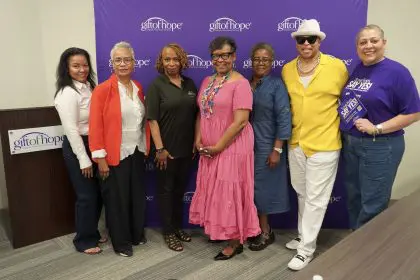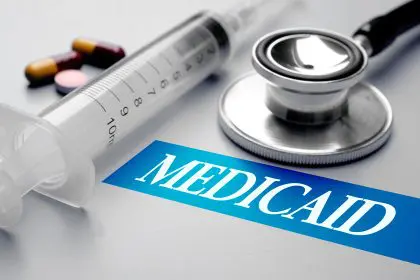
In a sunlit office in Mansfield,TX, Dr. Tenise Hordge leans forward, her passion evident as she outlines her vision for transforming maternal healthcare in Texas. “We’ve been brought to, now we have to bring through,” she says with quiet conviction. This ancestral wisdom forms the cornerstone of her approach to what she describes as “abysmal times” for Black women giving birth in the Lone Star State.
As founder of More Milk, a nonprofit whose acronym cleverly stands for Maternal Impact Leadership and Knowledge, Dr. Hordge has positioned herself at the intersection of breastfeeding advocacy and the broader fight for maternal health equity. Her upcoming summit, “The State of Black Maternal Health,” comes at a critical moment as Texas continues to struggle with maternal mortality rates that disproportionately affect Black women.
Creating actionable solutions
The statistics are indeed grim. Between 70% and 85% of maternal deaths in Texas are preventable, according to Dr. Hordge. “That’s where we really start to see that problem explode, because exponentially different as a Black birthing woman,” she explains, her voice carrying both urgency and determination.
But rather than dwelling exclusively on the troubling data, the summit aims to transform collective outrage into coordinated action. “I do want to acknowledge that that is there, I want to hold space for that, but I want the individuals, the birth workers, the Allied health professionals, the community leaders, the activists in the room that can really put together a plan,” says Dr. Hordge.
That plan focuses on 5 key areas where immediate action can save lives:
- Mental health support tailored specifically for Black women during pregnancy and postpartum
- Prenatal education that addresses historical healthcare inequities
- Policy and advocacy innovations targeting maternal health equity
- Communication strategies derived from social determinants of health
- Community outreach programs that extend care beyond hospital discharge
Dr. Hordge brings unique credentials to this work. An International Board Certified Lactation Consultant with a doctorate in healthcare administration, she also has backgrounds in engineering and project management. This multidisciplinary expertise informs her practical approach to problem-solving in a healthcare system plagued by systemic racism.
Mobilizing unexpected allies
One distinctive aspect of the summit is its outreach to organizations not traditionally associated with maternal health advocacy. “We have a D9 and Jack and Jill panel,” Dr. Hordge notes, referencing historically Black fraternities and sororities alongside a prominent family organization. “These organizations have been advocating for well over a hundred years for children. Our communities and those are transferable skills.”
The summit will explore how these established networks can pivot their considerable influence toward maternal health. This strategic alliance-building reflects Dr. Hordge’s corporate background, bringing professional project management methodologies to grassroots health activism.
Men are also explicitly invited into the conversation. Countering societal narratives about absent Black fathers, Dr. Hordge emphasizes the vital role men can play: “They carry that kind of weight, they have deeper voices, they usually have these larger appearances that can’t be ignored.”
She envisions male partners equipped to ask critical questions during medical appointments and to advocate when “your female relative loved one can’t.” This inclusive approach recognizes that maternal health outcomes improve when entire communities mobilize.
Practical barriers, practical solutions
Transportation emerges as a surprisingly significant barrier to care in Dr. Hordge’s analysis. “In the year 2025 people can’t get to prenatal doctor’s appointments or follow-ups because they don’t have transportation,” she points out. “I, for one, live in a city that doesn’t have public transportation.”
Such practical obstacles contribute substantially to poor outcomes, yet they remain addressable through community coordination. Summit attendees will develop “actionable things like a car ride system,” placing seemingly intractable health disparities within reach of collaborative solutions.
This practical focus extends to resource sharing through a connections panel that will ensure no participant leaves without knowing where to direct families in need. “There’s so much crossover in the populations that we serve. There should be no reason for someone leaving the summit saying, ‘Oh, I have a family that has need XYZ, I don’t know where to send them,'” Dr. Hordge explains.
She cites specific resources, Bridges Safe House in Cedar Hill and the Afiya Center in Dallas, as examples of the existing infrastructure that could be better leveraged through improved coordination.
Information as intervention
At its core, More Milk functions as an educational enterprise filling critical knowledge gaps. “We have well informed people, but not necessarily with the right information,” Dr. Hordge observes.
Following the summit, she plans to form working roundtables to implement actions identified during the event. This methodical approach, identifying issues, developing strategies, assigning responsibilities, and following through, brings corporate-style accountability to public health advocacy.
While the summit focuses on Texas, Dr. Hordge emphasizes that its lessons apply nationally. When asked what someone in Chicago could do, she stresses the importance of understanding local statistics, identifying contributing causes, and developing targeted interventions based on specific community needs.
As our conversation concludes, Dr. Hordge’s challenge resonates: “You have to determine what side of history you want to be on.” For a healthcare system still struggling to deliver equitable care to all mothers, the question has never been more urgent, or the path forward more clearly marked.
The State of Black Maternal Health summit takes place this weekend. More information is available at www.moremilk.org and across social media platforms.














